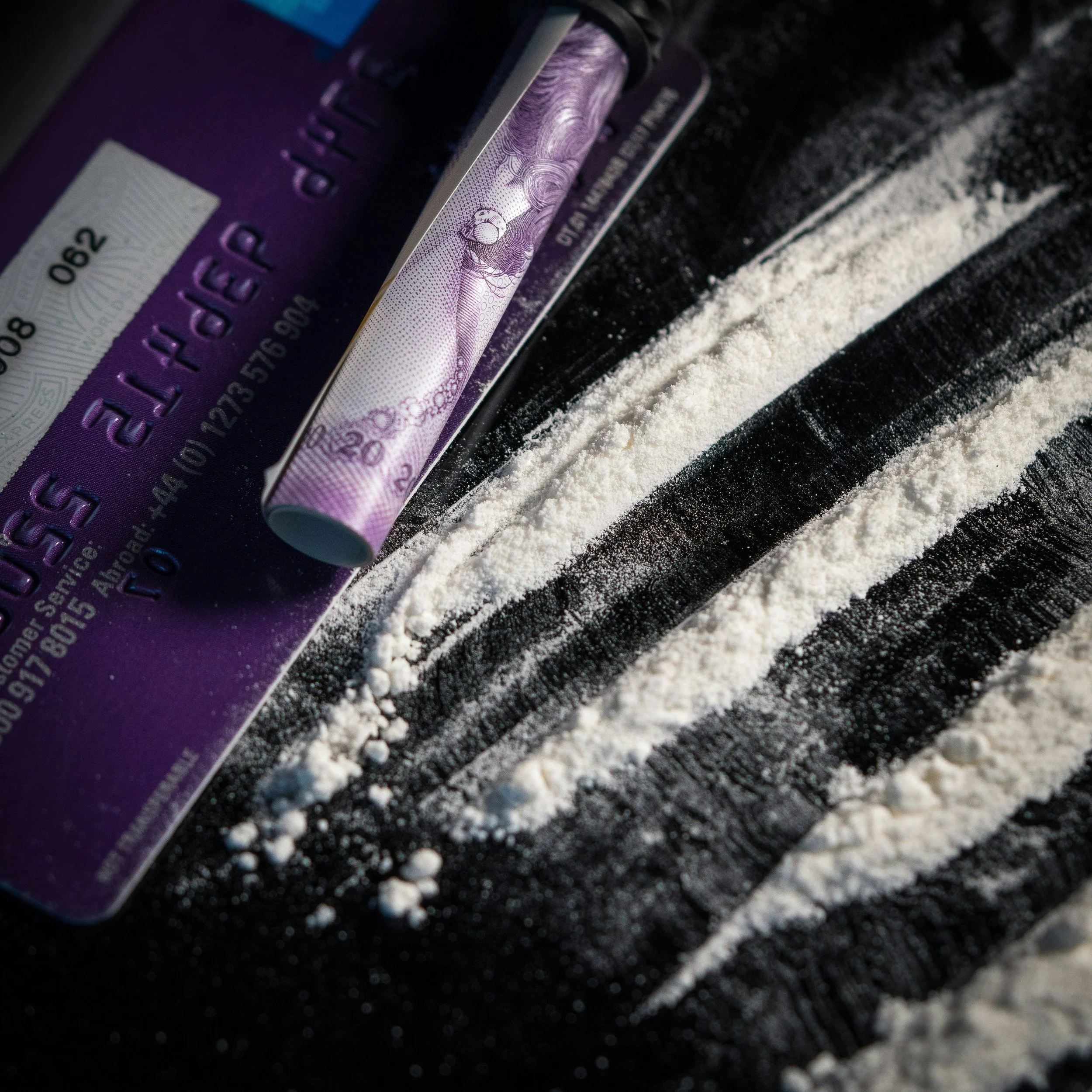Cocaine
Cocaine is a powerful and highly addictive central nervous system stimulant. It is a controlled substance derived from the leaves of the coca plant. Its use is associated with a high potential for abuse, and it carries significant health risks.
Here is a general overview of the substance:
What It Is and How It Works in the Body
Cocaine works by interfering with the brain's "reward pathway," specifically by blocking the reuptake of a neurotransmitter called dopamine. Dopamine is a chemical associated with pleasure and motivation. By preventing its reabsorption, cocaine causes dopamine to build up in the brain's synapses, leading to:
Intense Euphoria: A rapid and powerful feeling of happiness and well-being.
Increased Energy: A surge of energy and alertness.
A Feeling of Superiority: A sense of heightened confidence and self-esteem.
The effects are typically short-lived, lasting from a few minutes to about an hour, which often leads to repeated use to maintain the high.
Forms and Methods of Administration
Cocaine is typically found in two main forms:
Powder: This form is a white, crystalline powder. It is most commonly used by snorting it through the nose, where it is absorbed through the nasal tissues. It can also be dissolved and injected.
Crack Cocaine: This is a freebase form of cocaine that appears as a small, off-white crystal or rock. It is typically consumed by smoking it in a pipe. Smoking delivers a more intense and rapid high, which is also shorter-lived, making it extremely addictive.
Signs of Use
Signs that someone may be under the influence of cocaine include:
Physical: Dilated pupils, increased heart rate and blood pressure, and a reduced appetite.
Behavioral: Talkativeness, a sense of euphoria, and increased energy and activity.
Psychological: A feeling of grandiosity, irritability, and restlessness. After the effects wear off, the user may experience a "crash," characterized by intense depression, fatigue, and irritability.
Significant Risks and Other Important Information
Cocaine is an extremely dangerous substance with severe health and social consequences:
Severe Addiction: It is one of the most addictive drugs available. The intense, short-lived high leads to a powerful craving for more, which can quickly spiral into addiction.
Cardiovascular Risks: Cocaine is a vasoconstrictor, meaning it narrows blood vessels. This can lead to a dangerously high heart rate and blood pressure, increasing the risk of heart attack, stroke, and cardiac arrest, even in young, healthy individuals.
Mental Health: Chronic use can cause severe psychological effects, including paranoia, hallucinations, and psychosis.
Overdose: An overdose can occur from using too much or from a drug-related complication like a heart attack. Symptoms include a seizure, high body temperature, or arrhythmia, which can be fatal.
Legal Consequences: The possession and use of cocaine are illegal and carry severe legal penalties.
